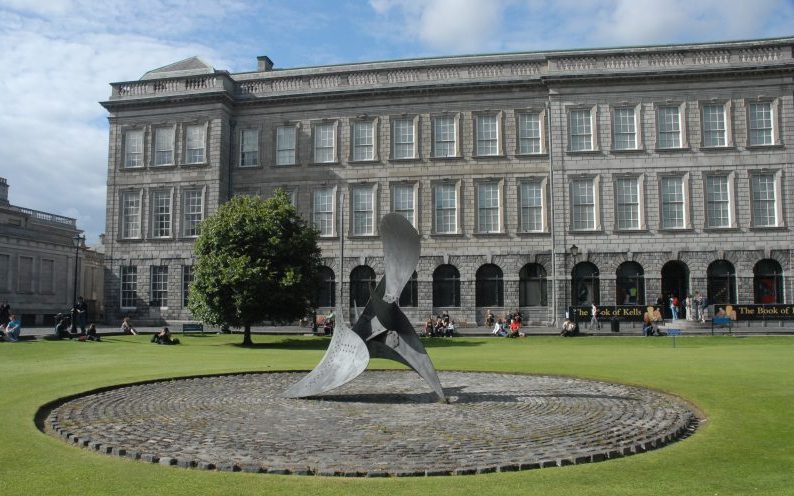Four Trinity researchers have been awarded Science Foundation Ireland (SFI) public service fellowships. These fellowships will see the researchers working on projects alongside government departments, agencies and/or the Library & Research Service of the Oireachtas.
A total of 12 fellowships have been awarded, including the four led by Trinity researchers. The purpose of the programme is to foster innovation within the public sector to help inform new policy and improve the services that they deliver.
The four Trinity researchers who have secured the fellowships and will be temporarily seconded to work for the government are Dr Claire McKenna, Dr Boris Galkin, Professor David Lewis, and Dr Cormac Ó’Coileáin. They will each take the title of “SFI Researcher in Residence” for the duration of the secondment.
The maximum funding being awarded to a project stands at €100,000 for direct costs. This is to include the cost of hiring a temporary lecturer to cover the classes of fellows while they are working on the project, as well as salary contribution, and travel and accommodation costs of up to €10,000.
Claire McKenna, who is international funding manager at Trinity’s Advanced Materials and BioEngineering Research (AMBER) Centre, will be working at the department of further and higher education, research, innovation and science. She will be working on a project to devise a standard research classification system for tracking public investment in research.
Speaking in anticipation of the project McKenna said that such a system “will enable a greater understanding of how public money is spent across the Irish research ecosystem”.
“I am looking forward to using my research background in the AMBER centre in Trinity to make a meaningful contribution to the development of future national research policy”, she added.
The other three Trinity researchers who have secured fellowships will all be hosted by the Houses of the Oireachtas Library & Research Service.
David Lewis, who normally resides in College’s school of computer science and statistics as an associate professor, will be looking at the ethical, societal and economic impact of trustworthy AI and big data governance. He noted: “As our lives become increasingly digitised, more power is concentrated in the hands of those able to collect and process our data using AI. We therefore must find how the voices of all affected stakeholders can be clearly heard when building AI systems, to ensure there is no datafication without representation.”
During his secondment to the Oireachtas Research & Library Services, Research Fellow in the school of chemistry Cormac Ó’Coileáin is due to look at the economic, social and ethical implications of nanotechnology. Ó’Coileáin has said that the fellowship is “an interesting opportunity to share scientific knowledge and experience – to help inform evidence-based development of policy within Ireland”.
The final Trinity fellow Boris Galkin, a research fellow at CONNECT, will work on a project that assesses the economic, social and ethical implications of Unmanned Aerial Vehicles (Drones).
Dr Galkin has claimed that the covid-19 pandemic has made his work all the more prescient, stating that it has “highlighted the need for socially distanced delivery services”.
He added that “already, in Ireland, food and medicine is being delivered by drone. As this technology continues to become a more visible part of Irish life our elected representatives will need to have a good understanding of the issues surrounding it”.
The fellowships are to have a duration of between 3 and 12 months if full-time, and between 6 and 24 months if part-time.






